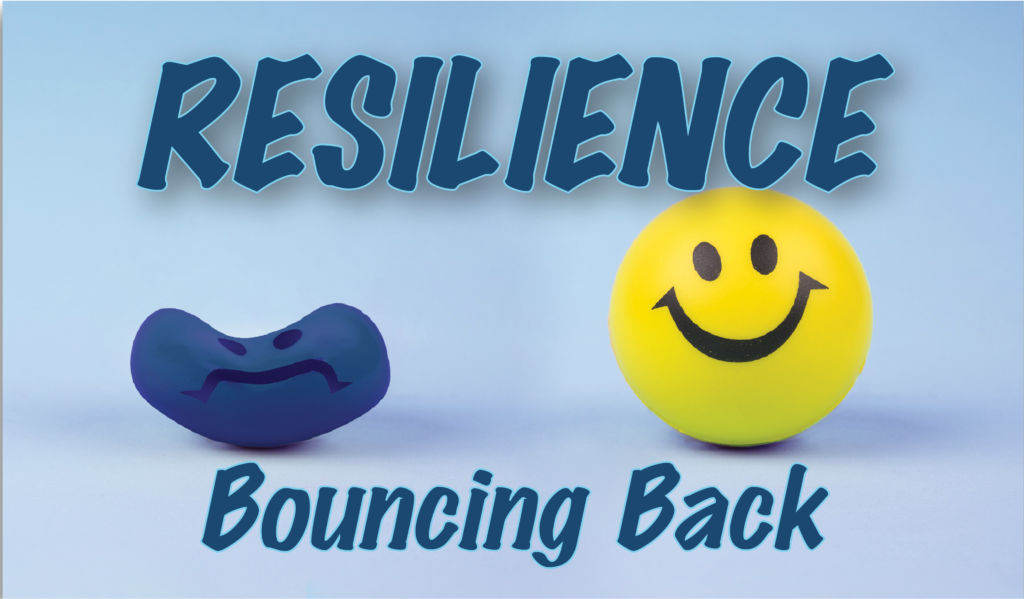Learning to do hard things and bouncing back.

Burnout has reached pandemic proportions. Costs of burned out workers to employers is estimated to be around $ 3,400.00 for every $ 10,000.00 of payroll. When burnout causes work disability, costs are even higher. Meanwhile, workplaces are understaffed and remaining workers stressed even further.
One may blame the Covid-19 pandemic but burnout preceded it (but was certainly exacerbated by it).
What to do? What are the “upstream solutions” to burnout? How can we ensure a more resilient workforce?
How we lost our resilience (and productivity) as a society
A recent sign at a restaurant said it well, “The whole world is short staffed … be kind to the ones that showed up.”
A hospital cleaner in her 60’s recently said, “We have 30 casuals to call when we are short staffed, but they don’t answer their phones because ‘no one wants to work.’”
There are many voices joining the dialogue about our ailing culture and workforce. And our collapsing healthcare system. Fraser Institute economists recently commented that with Canada’s unproductive workforce, the much anticipated 4-day workweek is a pipe dream.
“But to achieve a reduction in the workweek, while maintaining or even increasing material living standards, Canada must improve productivity – that is, get better at transforming inputs (raw materials, labour, ideas) into goods and services.”
JASON CLEMENS, STEVEN GLOBERMAN AND MILAGROS PALACIOS
Why is productivity waning? Why is it hard to find willing workers? Are employees lazy? Are they unfocussed? Are they physically in poor shape and weak? Why are burnout rates at all-time high?
The Coddling of the American Mind: How Good Intentions and Bad Ideas Are Setting Up a Generation for Failure, social scientist Jonathan Haidt and lawyer Greg Lukianoff explore what they believe are the origins of today’s “fragility.” While their work is based on United States data, we are likely not far behind in the trends they have identified:
- Extreme polarization of political, religious, and philosophical ideologies
- Delayed maturation of our youth
- Paranoid parenting (fears of abduction and “helicopter” parenting styles)
- Decline in unsupervised play
- University campus bureaucracy on safetyism
Another voice weighing in is Canadian retired physician and renowned addictions expert, Dr. Gabor Maté. He goes as far as to label our culture “toxic” in his book title: The Myth of Normal: Trauma, Illness and Healing in a Toxic Culture.
He writes, “I have come to believe that behind the entire epidemic of chronic afflictions, mental and physical, that beset our current moment, something is amiss in our culture itself, generating both the rash of ailments we are suffering and, crucially, the ideological blind spots that keep us from seeing our predicament clearly, the better to do something about it.”
He too goes on to identify childhood trauma, parenting practises, and cultural beliefs as roots of what ails us.
Dietary cultural trends have also been identified as likely roots to poorer health and resilience. Starting in the 1970’s, food manufacturers were encouraged to reduce fat content and to make these products more palatable, added processed carbohydrates. In Ultra-Processed People, Dr. Chris Van Tulleken describes how these manufacturing changes contribute to rising obesity, as well as neuroinflammation and a rise in depression and anxiety.
Not all cultures are (or were) equally “fragile.” During my five years treating a people group of about 2 million in West Africa in the early 80’s, there was extremely low incidence of mental illness. We didn’t need to stock either antidepressants or antianxiety medications and didn’t see or hear of a single completed suicide during my entire tenure.
Do hard things
The adage, “What doesn’t kill you makes you stronger,” is in fact true. When your system is stressed a little but not too much, it responds by becoming stronger and more resilient. This phenomenon is called hormesis. Elite athletes know this. “No pain, no gain.”
Michael Easter explored this concept in his book, The Comfort Crisis. He notes that we’re more comfortable than ever before—sheltered, temperature-controlled, overfed, underchallenged—potentially the “leading cause of many of our most urgent physical and mental health issues.”
In other words, we have become too soft.
Steve Magness makes the same point in Do Hard Things: Why We Get Resilience Wrong and the Surprising Science of REAL TOUGHNESS. As does Nassim Taleb in Antifragile: Things that gain from disorder.
Of course, ancient sages have written of that for millennia.
What can we do to ensure a more resilient society?
In their final chapters of The Coddling of the American Mind, Lukianoff and Haidt suggest practical ways to “Wising Up.” Here are some of their suggestions:
- Prepare the child for the road, not the road for the child.
- Your worst enemy cannot harm you as much as your own unguarded thoughts.
- Help schools to oppose the “great untruths” (the 3 they identify in their book).
- Limit and refine device time.
- Support a new national norm: service or work before college.
They write, “If parents and teachers can raise children who are antifragile; if middle schools and high schools can cultivate the intellectual virtues; if all high school graduates spend a year doing service or paid work away from home, before beginning college at age nineteen or later, we think most students will be ready for anything.”
I would add mandatory daily physical education from K through Grade 12. 80% of children in Canada do not achieve recommended physical activity for health.
We also need to rethink the diets of our children and ourselves.
Starting a conversation
I would propose that we start having conversations together as leaders from healthcare, education, business, faith communities, charities, and parents to foster upstream solutions to our current crises.
It truly does take a village to raise a child (well).
If you would like to join the conversation, please contact me.
